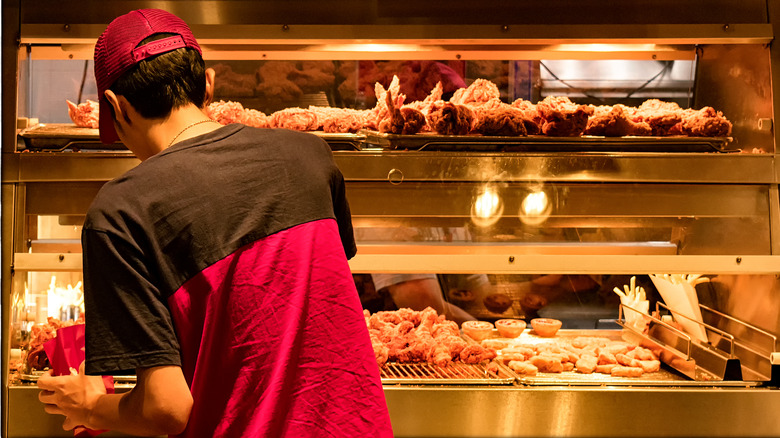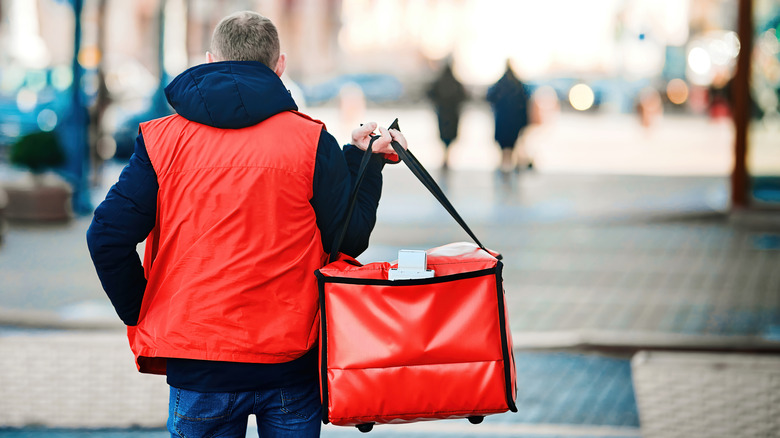These Fast Food Restaurants Are In Hot Water Over Child Labor
As good as fast food can sometimes taste, there are plenty of reasons to avoid it, too. If you're trying to eat healthy, avoid processed foods, or limit your sodium intake, fast food chains are probably not for you. These chains sometimes get caught up in scandals, as well: think of fried chicken giant Chick-Fil-A's ongoing friction with the LGBTQ+ community, for example, or last year's attention-grabbing video of a Dunkin' location dumping bags upon bags of unsold food instead of donating it (via Eat This, Not That!).
If you, like some eaters, try to save your dining-out money for more ethically minded businesses, you might want to read this news item concerning Subway, Burger King, and Popeyes locations in South Carolina. They've been accused by the U.S. Department of Labor of repeatedly violating child labor laws — and the repercussions are serious.
Letting minors work too late or for too many hours
According to a statement released by the U.S. Department of Labor (DOL), operators of certain South Carolina locations of the chains Subway, Burger King, Popeyes, and Frodo's Pizza have been charged with serious violations of child labor laws. All told, 53 locations have been named as having let employees under the age of 18 work past 9 p.m.; work more than 18 hours per week during a school week; and work as delivery drivers — all of which violate child labor laws. These laws are put in place to allow young people to work, but in jobs that protect their safety, growth, and development.
"Restaurant industry employers must understand and comply with child labor laws concerning hours and occupations," Jamie Benefiel of the DOL wrote in the statement. "Child labor laws exists to ensure that young workers gain valuable workplace experience, but not at the expense of their education or safety."
Violating these laws is a serious — and costly — business: an operator of four Subway locations was charged nearly $4,500 in penalties, while a Frodo's operator was charged more than $3,000. As noted by Insider, restaurants still struggling with labor shortages as a result of the COVID-19 pandemic could be attempting to scrape by on reduced staff by keeping their minor employees on later or longer shifts. But they'll have to find other, more lawful means to stay afloat if they want to avoid paying additional fines.

